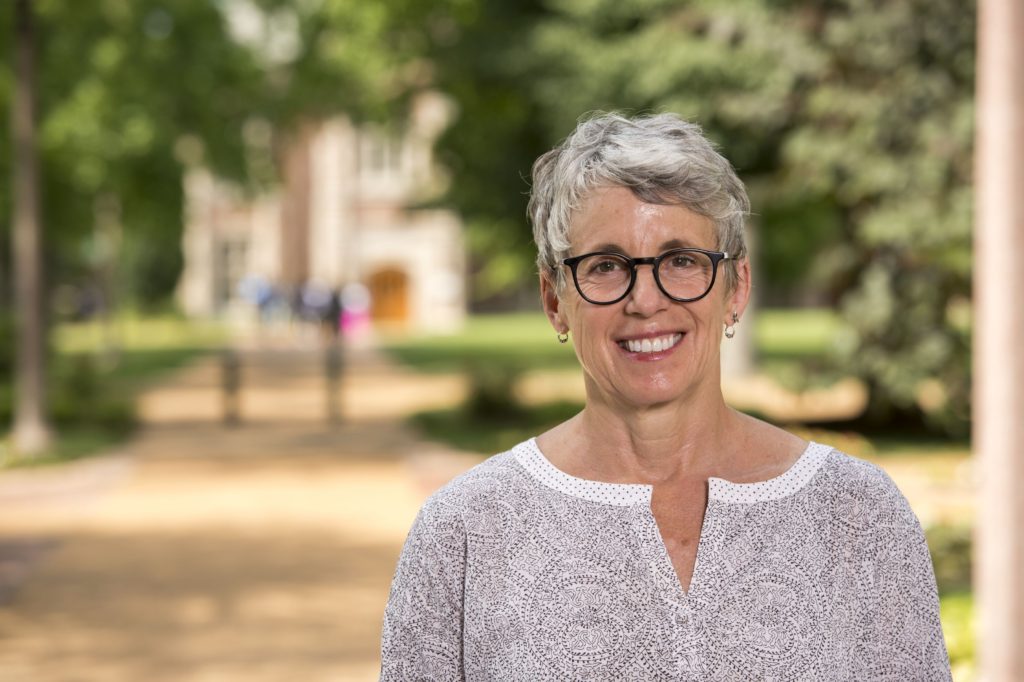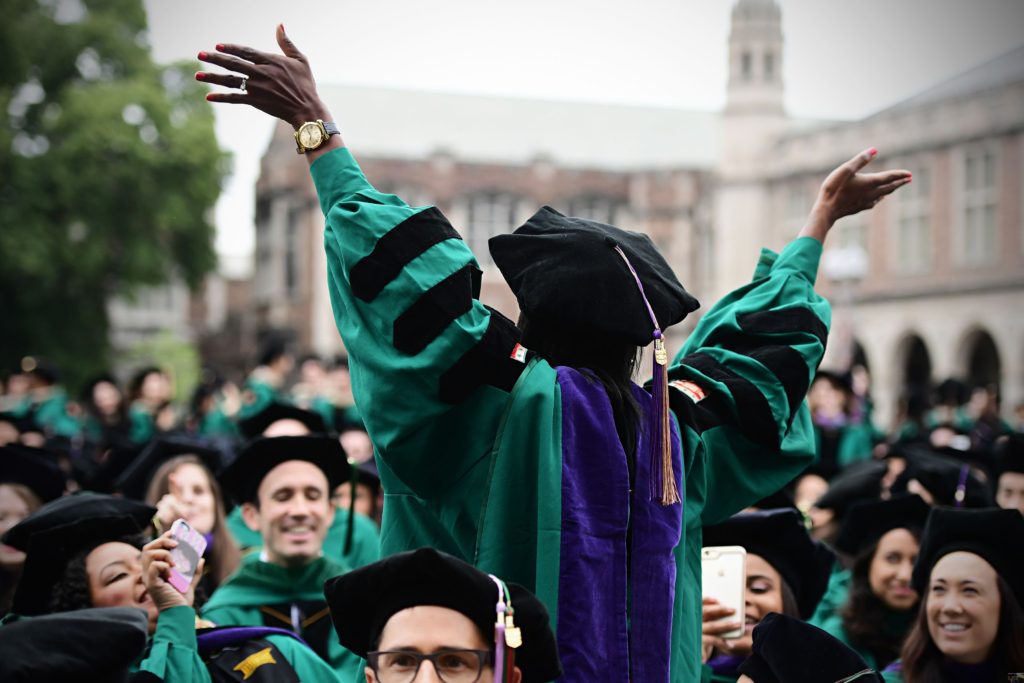
Students earning humanities doctorates are somewhat more likely than STEM colleagues to graduate with firm job commitments — both inside and outside of academia. Yet most U.S. humanities programs prepare doctoral students primarily for tenure-track positions.
That could be changing. This summer, Jean Allman, director of the Center for the Humanities in Arts & Sciences at Washington University in St. Louis, received a prestigious Next Generation Humanities PhD Planning Grant from the National Endowment for the Humanities. The grant is designed to help transform doctoral training while promoting a greater sense of public engagement.
Allman discusses the humanities, dissertations and the future of the PhD.
What drew you to this topic?
Right now, there’s a real intellectual debate going on. What is a doctorate? What is a dissertation? What is an appropriate academic capstone? And how is that related to building a career? To me, it’s all fascinating.
My interest started several years ago. Rich Smith, then dean of The Graduate School, asked me to lead a committee tasked with defining the dissertation. And I’m thinking, sure, I know what a dissertation is. I wrote one. It’s 300 pages. It has lots of footnotes … . [Laughs.]
Of course, the reality is more complicated. In math, a dissertation might be 30 pages. In chemistry, it might be a series of collaborative articles. Physics, business, social work — all have very different ideas about what a dissertation looks like.
I realized that we humanists need to step up our game. Other fields have adapted and re-shaped the dissertation. Humanities students still do exactly what I did, and what the generation before me did. It hasn’t changed at all.

So what might the humanities doctorate of the future look like?
Well, that’s the question. Do we still need the 300-page manuscript? Are there ways to incorporate digital or collaborative work? What if you published a series of articles, or made a film or documentary? It’s all up for grabs.
But if you change the nature of the dissertation, you have to recognize that you’re also impacting people who stay in academia. Many institutions still consider the single-author monograph to be the proof of tenure worthiness. I think those rules will need to change, too.
People don’t read monographs the way they used to. I’m an Africanist, and I’m working on a book project right now. If and when it’s published, my colleagues in West Africa still won’t be able to access it. A printed book can cost a month’s salary. But imagine that same work published as a series of articles. They do have digital bandwidth. They do have access to JSTOR.
That’s an interesting point. The shape of the PhD can influence who is able to access that knowledge.
Absolutely. If you’re writing a 300-page monograph, then you’re writing for a very particular North American and European audience. At the same time, how we train PhDs shapes what people are able to do after graduation. And job prospects influence who decides to enter the field.
If all we’re doing is training people for tenure-track jobs, and if we know those jobs are becoming fewer and farther between, then we’re going to have a far less diverse group of people earning PhDs. But if the training is rigorous and multifaceted — if the skills we offer can inform a wide variety of career options — then we’re going to have a much stronger and more diverse pool of applicants.
Tell us about the NEH grant. What issues are you examining?
We’ve identified four main problems, and have groups looking at each. The first, led by Michael Sherberg, is looking at cohort size. Today, even large doctoral programs may have entering classes of a dozen students — and many have only four or five, often with very different areas of focus. So, how do you build graduate seminars? How do you create a sense of community? It’s a real challenge.
The second group, led by Joe Loewenstein, is looking at pre-qualification coursework, what we ask students to do, and time to degree. The third group, led by Liz Childs, is examining the training we offer once coursework is complete. How do we get people out into the world? And what sorts of fellowships, internships or other opportunities might that require? How might we rethink the form and substance of the dissertation?”
The fourth group, led by Mark Smith, is looking at career advising. Where exactly are people getting jobs? And what sort of advising can we offer to those who aren’t interested in the tenure track? Working for a public institution or a community group — anything that engages the best of your skills — can be an equally worthy outcome.
The idea that one might choose to enter academia or the private sector seems more common in STEM fields. In the humanities, does that represent a cultural shift?
Within departments, you often hear about advisees who’ve been granted tenure, but you seldom hear about advisees who become CEOs or direct nonprofits. Most programs don’t have a culture of celebrating that; we’re just too stuck in our silos. I think we all need to poke our heads out a little more.
At WashU, we have a graduate dean, Bill Tate, who is encouraging us to think outside the box — and who has spent the last several years gathering the data that will allow us to do just that. How many candidates, how many graduates, how long it takes to earn a degree, what they’re doing now … . We have a solid statistical map, which a lot of universities don’t have.
But the fact is, things are happening at other places too. There are people we can engage, templates we can examine, foundations who are invested in helping us. We all want to do a better job of engaging the public. We all want our graduates to be doing interesting and strategic work.
We all want the humanities to thrive. Now is the time.
